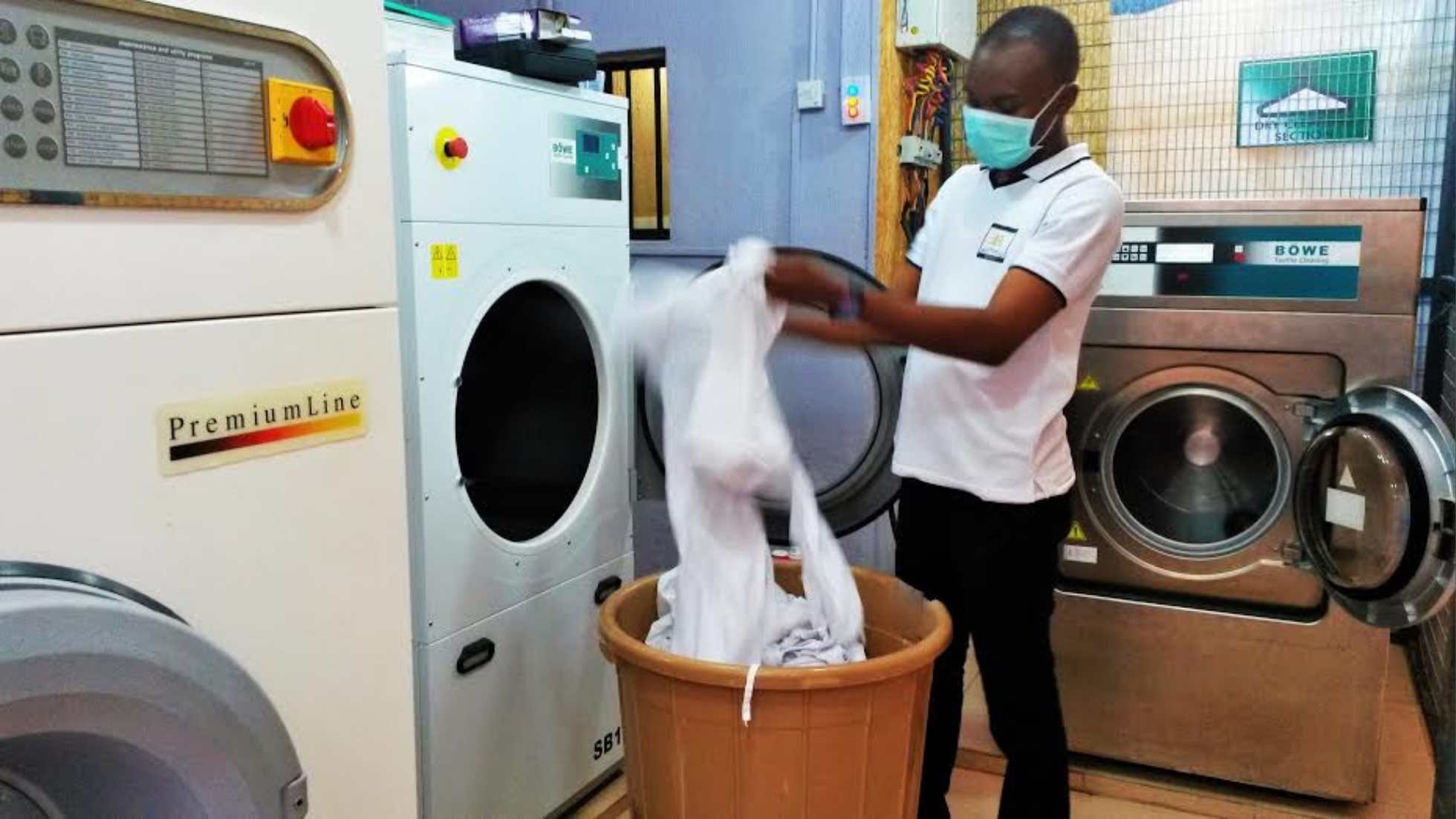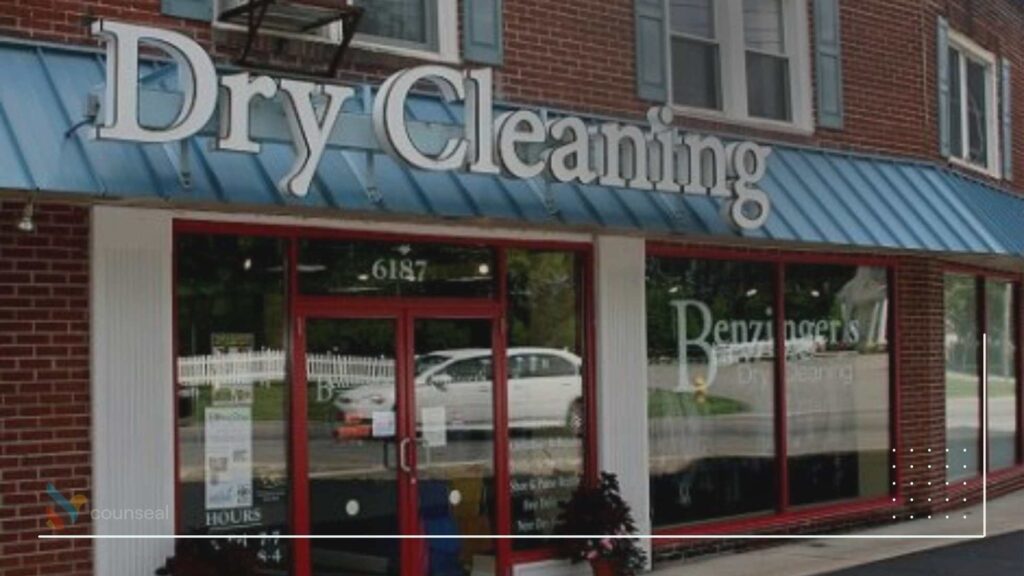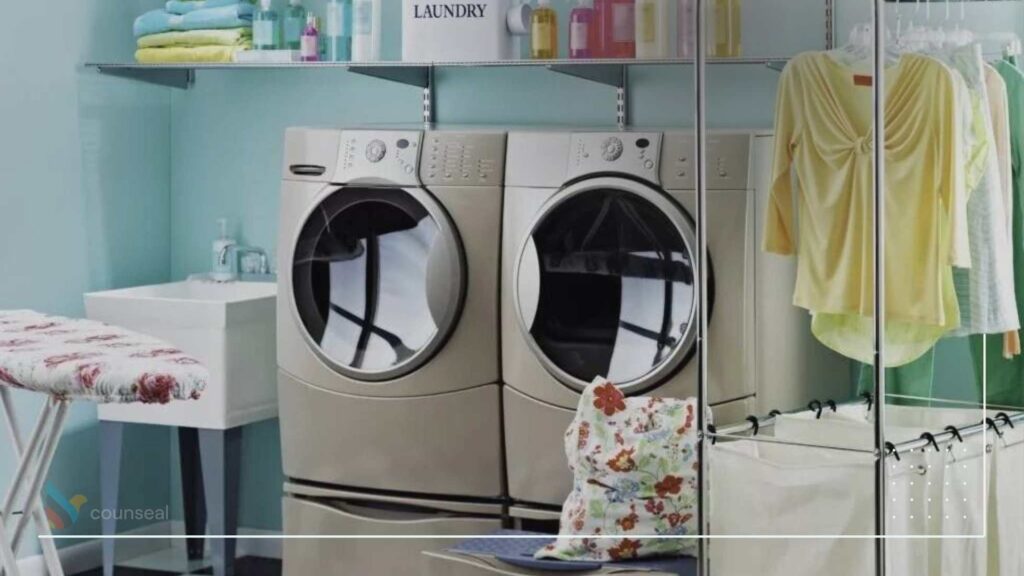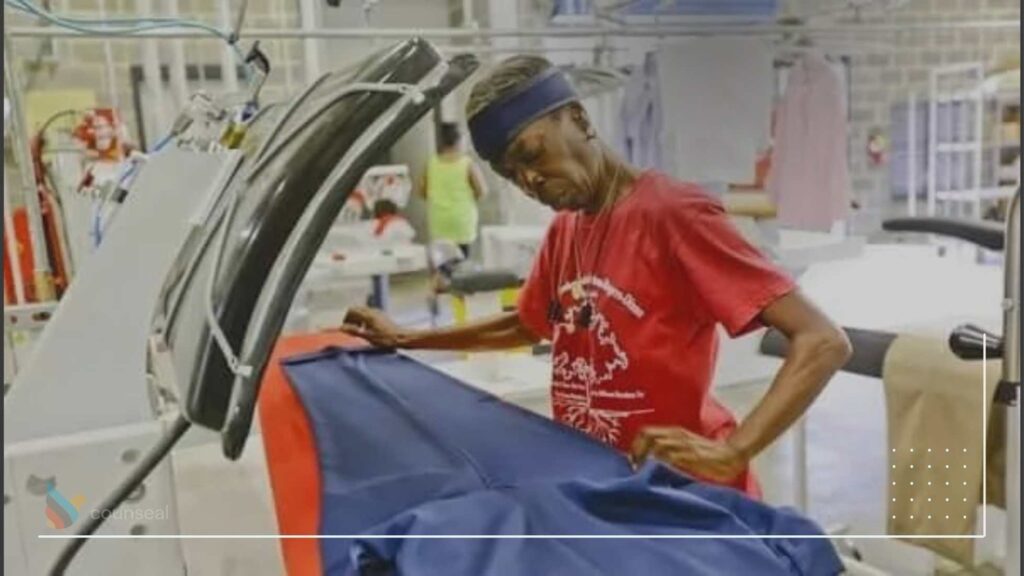Start a Laundry Business in Nigeria: An 8-Steps Guide

by Counseal Team
Updated March 15, 2025

If you’re looking to dip your toes into the entrepreneurial pool, launching a laundry business in Nigeria is a great start.
Why, you ask?
Nigeria’s rapid urbanisation, combined with its bustling population, has seen the demand for laundry services rise like a phoenix. Yes, you heard it right!
The laundry business is a growing industry in Nigeria, and for good reasons.
So, what exactly is a laundry business? In simple terms, it’s a service that provides washing, drying and ironing of clothes and other textile items.
In this guide, we share how to start yours.
First, let’s go through some facts.
Quick Takes
How much does it cost to start this business?
The cost of starting a laundry business in Nigeria varies depending on the size of your business and the equipment you need. However, you can expect to spend at least ₦500,000 to start a basic laundry business. Some of the factors that affect the cost of starting a laundry business include:
- The location of your business: You need to find a suitable place to rent or buy, preferably in a residential area or near a busy road.
- The equipment and materials you need: You need to buy or lease washing machines, dryers, irons, hangers, detergents, starch, and other cleaning supplies. You also need to install a power generator, a water tank, and a water pump.
- The staff you hire: You need to pay salaries and wages to your employees, as well as provide them with uniforms and training.
- The marketing and promotion of your business: You need to create awareness and attract customers to your business, using methods such as flyers, banners, social media, word-of-mouth, etc.
How much can you make per month?
The amount of money you can make per month from a laundry business in Nigeria depends on several factors, such as the size of your business, the number of customers you have, the prices you charge, and the costs you incur. However, you can expect to make between ₦100,000 to ₦500,000 per month from a small to medium-sized laundry business.
To calculate your monthly profit, you need to subtract your monthly expenses from your monthly revenue. Some of the common expenses you may have include:
- Rent
- Electricity
- Water
- Salaries
- Equipment
- Materials
- Marketing
Your monthly revenue is the amount of money you make from your customers. It depends on the number of customers you have, the number of clothes you wash, and the prices you charge. You may also have other sources of income, such as dry cleaning, ironing, folding, etc.
To increase your monthly profit, you need to either increase your revenue or decrease your expenses.
You can do this by:
- Providing quality service and customer satisfaction, which will help you retain your existing customers and attract new ones.
- Offering competitive pricing and value-added services, which will help you increase your market share and revenue.
- Reducing your operational costs and wastage, which will help you save money and increase your profit margin.
- Investing in modern equipment and technology, which will help you improve your efficiency and productivity.
- Expanding your business and reaching new markets, which will help you grow your customer base and revenue.
What is the minimum required to start this business?
The minimum capital required to start a laundry business in Nigeria depends on the scale and size of your business. However, you can start a laundry business in Nigeria with as low as ₦50,000 to ₦100,000 for a small-scale business, or ₦500,000 to ₦1,000,000 for a small to medium-sized business12. For a large-scale laundry business, you should budget ₦1,000,000 and above.
Some of the factors that affect the cost of starting a laundry business include:
- The location of your business: You need to find a suitable place to rent or buy, preferably in a residential area or near a busy road.
- The equipment and materials you need: You need to buy or lease washing machines, dryers, irons, hangers, detergents, starch, and other cleaning supplies. You also need to install a power generator, a water tank, and a water pump.
- The staff you hire: You need to pay salaries and wages to your employees, as well as provide them with uniforms and training.
- The marketing and promotion of your business: You need to create awareness and attract customers to your business, using methods such as flyers, banners, social media, word-of-mouth, etc.
What are the best states to start this business?
The best states in Nigeria to start a laundry business are those that have a large population, a high level of urbanisation, and a high demand for laundry services. Based on these criteria, some of the best states in Nigeria to start a laundry business include:
- Lagos: Lagos is the most populous and urbanised state in Nigeria, with an estimated population of over 21 million people. Lagos is also the commercial and industrial hub of Nigeria, with many businesses, hotels, and organisations that require laundry services. Lagos has a vibrant and competitive laundry market, with many opportunities for entrepreneurs to start and grow successful laundry businesses.
- Abuja: Abuja is the capital city and administrative centre of Nigeria, with an estimated population of over 3 million people. Abuja is also a cosmopolitan and modern city, with many residents who have busy lifestyles and need laundry services. Abuja has a growing and lucrative laundry market, with many potential customers and niches for entrepreneurs to explore.
- Kano: Kano is the second most populous and urbanised state in Nigeria, with an estimated population of over 13 million people. Kano is also the commercial and cultural centre of northern Nigeria, with many traders, artisans, and professionals who require laundry services. Kano has a large and diverse laundry market, with many opportunities for entrepreneurs to start and grow profitable laundry businesses.
- Rivers: Rivers is one of the most populous and urbanised states in Nigeria, with an estimated population of over 7 million people. Rivers is also the oil and gas hub of Nigeria, with many oil and gas companies, workers, and expatriates who require laundry services. Rivers has a high and stable demand for laundry services, with many opportunities for entrepreneurs to start and grow successful laundry businesses.
These are some of the best states in Nigeria to start a laundry business, based on the web search results. However, you can also start a laundry business in any other state in Nigeria, as long as you do your market research, have a good business plan, and provide quality service to your customers.
What are the known examples of this business?
Some of the known examples of laundry businesses in Nigeria are:
- Snowflakes Drycleaners: This is one of the leading laundry service providers in Nigeria, with over 20 branches across Lagos, Abuja, Port Harcourt, and Owerri. They offer professional dry cleaning, laundry, ironing, and home delivery services to individuals and corporate clients. They also provide training and consultancy services to aspiring laundry entrepreneurs. You can visit their website at Snowflakes Dry Cleaners for more information.
- Garment Care: This is another reputable laundry service provider in Nigeria, with over 15 branches in Lagos, Abuja, and Port Harcourt. They offer premium dry cleaning, laundry, ironing, and home delivery services to individuals and corporate clients. They also have a mobile app that allows customers to book and track their laundry orders. You can visit their website at Garment Care for more information.
- Laundry King: This is a fast-growing laundry service provider in Nigeria, with over 10 branches in Lagos, Abuja, and Ibadan. They offer quality dry cleaning, laundry, ironing, and home delivery services to individuals and corporate clients. They also have a loyalty program that rewards customers with discounts and free services. You can visit their website at Laundry King for more information.
- Clean Ace: This is a modern laundry service provider in Nigeria, with over 5 branches in Lagos and Abuja. They offer innovative dry cleaning, laundry, ironing, and home delivery services to individuals and corporate clients. They also have a smart locker system that allows customers to drop off and pick up their laundry at any time of the day. You can visit their website at Clean Ace for more information.
Why Laundry Business
Now, let’s talk about some of the perks of starting a laundry business.
This venture boasts low startup costs, flexible working hours, and the sweet taste of recurring income. Plus, the high demand for laundry services makes this business a hot cake in the market.
But! Starting a laundry business in Nigeria isn’t a walk in the park. It requires a proper roadmap—think market research, a solid business plan, understanding the legal requirements, finding the perfect location, getting the right equipment, hiring staff, marketing your services, and managing operations.
Sounds like a lot, huh? Don’t worry. I’ve got you covered.
In this guide, you will get a comprehensive, practical guide on how to start a laundry business in Nigeria, garnished with a sprinkle of personal experiences and a dash of expert advice.
Ready to dive in? Let’s get started!
1. Do a Market Research

Market research isn’t just a fancy buzzword; it’s the backbone of any successful business venture. Think of it as your Sherlock Holmes magnifying glass, helping you decipher the intricate details of your business landscape.
For a laundry business in Nigeria, where the market is as vibrant as it is competitive, skipping this step is like diving into a pool blindfolded. Don’t do it. Please.
Identifying Your Target Market
In the laundry business, you’re not just washing clothes; you’re providing a service to specific groups of customers. These could be residential customers who prefer the comfort of outsourced laundry, commercial businesses like hotels and restaurants, or institutions such as schools or hospitals. Knowing your target market is the first step towards tailoring your services to fit their needs.
Understanding Market Size and Trends
Next, you want to gauge the size of your market. How many potential customers are out there? What’s the existing demand for laundry services in Nigeria? Are there any emerging trends you can tap into? For instance, the rise of technology and e-commerce has paved the way for on-demand laundry apps. There’s an opportunity waiting to be seized, but only if you have the insights to spot it.
Studying Your Competition
Now, let’s talk about your rivals. Who are they? What services do they offer? How do they price their offerings? Understanding your competitors helps you identify gaps in the market that you can fill. Plus, it gives you the chance to differentiate your service and outshine your competitors.
The SWOT Analysis and Why It’s Your Best Friend
The SWOT analysis is your business compass, guiding you through the Strengths, Weaknesses, Opportunities, and Threats of your laundry business. It’s an eagle-eye view that allows you to see your business from all angles and plan your strategy accordingly.
Tips and Tools for Market Research
So, how do you gather all this valuable information? Well, you can start with online surveys, which are a cost-effective way to gather data about customer preferences and behaviours. Interviews and focus groups can provide more in-depth insights, while observations can help you understand how customers interact with existing laundry services. Don’t forget to leverage secondary sources, such as industry reports and census data, for broader market trends and patterns.
In conclusion, market research is like the North Star guiding your business journey. It’s not just about gathering data but about interpreting that data to make informed decisions. So, get your detective hat on and start investigating! Remember, knowledge is power, and in the business world, it’s the power to succeed.
2. Craft a Business Plan

Embarking on a business journey without a business plan is like setting sail without a compass. So, what exactly is a business plan? It’s a comprehensive document that outlines your business’s vision, mission, goals, strategies, and financial projections. It’s the backbone of your business, especially for a laundry business where planning and precision are key.
Main Components of a Business Plan
A business plan for a laundry business isn’t that different from any other business plan. Here’s what you need to include:
- Executive Summary: This is your elevator pitch. It encapsulates everything about your laundry business, from the services you offer to your competitive advantage and financial summary. Think of it as a snapshot of your business.
- Company Description: Here, you dive deeper into the details of your business. It’s time to lay out the legal structure, ownership, location, and history of your laundry business. This section adds legitimacy and context to your business.
- Products and Services: What are you offering? This section details your laundry services – from wash and fold to dry cleaning, ironing, pickup, and delivery. It’s also important to include prices, features, and benefits of each service.
- Market Analysis: This is where you present your market research findings. You need to identify your target market, customer segments, market size, demand trends, opportunities, and competitors. This will help you understand the playground you’re stepping into.
- Marketing and Sales Strategy: How do you plan to attract and retain customers? Your marketing and sales strategies could include branding, promotion, distribution, pricing, and customer retention methods.
- Operations and Management Plan: This part of the plan outlines how your laundry business will function day-to-day. It should cover location, equipment, staff, inventory, quality control, and risk management.
- Financial Plan: The financial plan is a projection of your business’s financial future. It should include income statements, balance sheets, cash flow statements, a break-even analysis, and financial ratios. This helps you gauge the financial feasibility of your laundry business.
Remember, a business plan is not a one-time document but a living guide that should be revisited and updated as your business grows. Now, get to crafting that perfect business plan for your laundry business!
3. Do Your Legal Compliance

Let’s get down to brass tacks:
As a business owner, you cannot afford to overlook the importance of legal compliance. It is the backbone that lends your business credibility, safeguards it from potential liabilities, and most importantly, keeps you on the right side of Nigerian law.
Make no mistake, skipping these critical steps is like building a house on quicksand.
Start with the Basics: Register Your Business
First things first, you’ve got to get your business officially recognised. This involves registering your business name and obtaining a certificate of incorporation from the Corporate Affairs Commission (CAC). It’s a straightforward process that can be done online, and it’s your first step towards establishing your laundry business as a legal entity.
Get Your Tax Affairs in Order
Next, you’ll need to obtain a tax identification number (TIN) and register for value-added tax (VAT) from the Federal Inland Revenue Service (FIRS). This is non-negotiable folks, as this is the government’s way of ensuring that businesses contribute their fair share to the national coffers.
Secure the Necessary Permits and Licences
Once you’ve sorted your tax affairs, it’s time to obtain a business permit and licence from the local government authority where your business is located. This is basically a green light from the local council, indicating that your business has met all the necessary conditions and is permitted to operate in their jurisdiction.
Health and Environment Matters
Your laundry business, like any other, will have an impact on the environment. Hence, you must obtain an environmental health certificate from the State Ministry of Environment or the National Environmental Standards and Regulations Enforcement Agency (NESREA). This ensures that your business operations are not having a detrimental effect on the environment.
Fire Safety: A Must-Have
In addition, you’ll need to obtain a fire safety certificate from the State Fire Service or the Federal Fire Service. This is paramount, as it not only protects your property but also the lives of your employees and customers.
Insurance: Your Safety Net
Lastly, don’t forget to obtain an insurance policy for your business. This should cover public liability, property, and workers’ compensation. Having this safety net in place protects your business in the event of any unforeseen circumstances.
Seek Expert Help
Now, all this might seem like a lot, especially if you’re a first-time entrepreneur. But remember, you don’t have to do it alone. There are numerous resources available – online portals, agents, consultants, and lawyers – who can help streamline these processes for you. It’s worth the investment to get everything right from the get-go. Book a Consultation with our experts now.
So, there you have it. Legal compliance might seem like a daunting task, but it’s a necessary one. And once you’ve ticked all these boxes, you can focus on what you do best: running your laundry business.
4. Get the Perfect Location

So, you’re setting up a laundry business in Nigeria—fantastic! The first step in your entrepreneurial journey is securing the perfect location. Why? Because location directly impacts your business’ visibility, accessibility, convenience, and profitability. It’s not just about setting up shop anywhere; it’s about finding a spot where your services are needed and easily accessible.
Key Location Factors to Consider
When choosing a location for your laundry business, consider the following key factors:
1. Proximity and Density of Target Market: Where does your ideal customer live or work? If you’re targeting residential customers, a location in a densely populated area is ideal. For commercial or institutional customers, consider setting up near office complexes, schools, or hospitals.
2. Availability and Cost of Essential Resources: How much will it cost to rent or buy land in your desired area? What about utility costs and parking availability? These are all crucial components in determining your operating costs.
3. Competition: Who are your direct competitors in the area? Is the market saturated with other laundry services, dry cleaners, or self-service laundromats? Consider whether you can differentiate your services enough to attract customers.
4. Security and Safety: What is the crime rate in the area? Is it prone to heavy traffic or natural disasters? Safety should always be a priority, both for your business and your customers.
5. Growth and Expansion Potential: Is the area experiencing population growth? Are income levels rising? A positive answer to these questions could indicate increased demand for your services down the line.
Examples of Suitable Locations
Considering the factors above, here are some potential hotspots for your laundry business in Nigeria:
- Busy Streets: Visibility is key in this business. Setting up shop on a bustling street ensures that your business gets noticed.
- Shopping Malls: With a high footfall of potential customers, shopping malls can provide a steady stream of business.
- Residential Areas: Particularly in densely populated areas, a laundry service can be a lifesaver for busy families.
- Office Complexes: Busy professionals often don’t have time to handle their own laundry—why not make it easy for them?
- Schools: Schools, particularly boarding schools or universities with residential facilities, can provide a steady stream of customers.
Remember, the perfect location for your business depends on your unique circumstances and your understanding of your target market. Do your research, weigh your options, and make an informed decision. Here’s to your success in the laundry business!
5. Get Equipped

Let’s break down the main types of equipment you’ll need to arm yourself with before going into this battle against dirty laundry:
1. Washing Machines: These are your main weapons, they do the tough job of washing clothes using water, detergent, and a little bit of agitation. You’ll find different types in the market: front-load, top-load, and industrial. When choosing one, consider its size, capacity, speed, energy efficiency, and durability. Remember, your washing machine is going to be a workhorse, so it needs to be robust!
2. Dryers: Once the clothes are washed, they need to be dried. Dryers use hot air, steam, or gas to get the job done. Again, there are different types: electric, gas, and industrial. Keep the same factors in mind as with washing machines: size, capacity, speed, energy efficiency, and durability.
3. Irons: Irons are the final touch; they press and smooth clothes using heat and pressure. There is electric, steam, and industrial types to choose from. Here, you’ll be looking at size, power, temperature control, and additional features that can make your job easier.
4. Other equipment: Don’t forget about the small but essential items like laundry carts, baskets, hangers, racks, scales, tags, bags, etc. These may seem insignificant, but they play a vital role in keeping your operations smooth and efficient.
Acquiring Your Equipment: Gearing Up
Now that you know what you’ll need, let’s talk about how to get it. You have several options here: you can buy new equipment, lease it, rent it, or finance it. Each of these options has its pros and cons, and the best choice depends on your circumstances, such as your budget, business plan, and growth strategy.
For instance, buying new equipment could be a significant upfront cost, but it gives you complete ownership and control. On the other hand, leasing or renting can be more affordable in the short term and gives you the flexibility to upgrade as your business grows. Financing, meanwhile, allows you to spread the cost over time, making it easier on your cash flow.
So, there you have it, the basics of getting equipped for your laundry business. Remember, this is a crucial step that can make or break your operations. Choose wisely and don’t be afraid to invest in quality. Best of luck!
6. Employ the Right Staff

The lifeblood of any successful laundry business lies in one crucial element – its staff.
They are the backbone, the engine room, the movers and shakers of your enterprise. They are the ones who’ll be handling the nitty-gritty of the laundry process, engaging with your customers and ensuring your operations run as smooth as a freshly ironed shirt.
Understanding the Roles and Responsibilities
Just as every cog in a machine has a function, every member of your staff plays a crucial role in your laundry business. Let’s look at these roles and what they entail:
1. The Manager: This is your right-hand man (or woman). They are responsible for the overall running of the business, like planning, organising, directing, and controlling. Their tasks include hiring, training, supervising, and motivating staff, managing finances, inventory, and quality, addressing customer complaints and feedback, and ensuring adherence to legal and safety standards.
2. The Washer: This is the person who’s going to make your customers’ clothes sparkle. They are responsible for sorting, loading, unloading, and folding clothes, adding the right amount of detergent and other additives, setting the appropriate cycle and temperature, and checking for stains, damages, and defects.
3. The Dryer: This is the person who ensures that your customers’ clothes come out dry and intact. They sort, load, and unload clothes, set the appropriate drying time and heat, and check for shrinkage, wrinkles, and burns.
4. The Ironer: This is the person who irons the clothes using the irons, following the instructions and specifications of the customers and the business. Their responsibilities include sorting, pressing, and hanging clothes, setting the appropriate temperature and pressure, and checking for creases, marks, and scorching.
5. The Driver: This is the person who ensures your customers’ clothes reach them on time. They are responsible for loading, unloading, and transporting clothes, collecting and issuing receipts, maintaining the vehicle, and ensuring customer satisfaction.
6. The Receptionist: This is the first point of contact for your customers. They handle greeting and registering customers, taking and recording orders, issuing tags and tickets, accepting and returning clothes, handling payments, and answering inquiries and calls.
Hiring, Training, Retaining: The Trifecta for Success
If you’ve ever wondered how to find the right people for your business, train them to your standards and keep them motivated, here are some tips:
1. Hiring: Look for candidates who are not just qualified and experienced, but also reliable. Make use of online platforms, referrals, or agencies, conduct interviews and background checks, and offer competitive wages and benefits to attract the best.
2. Training: Start with an orientation, provide manuals, and give hands-on demonstrations. Teach the specific skills, standards, and expectations of your business. Monitor and evaluate the performance and progress of the staff and provide constructive feedback and coaching.
3. Retaining: Create a positive and supportive work environment. Recognise and reward the achievements and contributions of the staff, provide opportunities for growth and development, and listen and address the feedback and concerns of the staff.
In essence, your staff is your most asset. Choose wisely, train diligently, and nurture consistently. Remember, a happy team means happy customers, and happy customers mean a thriving laundry business. Now, that’s a cycle we can all appreciate!
7. Market and Advertise your Business

When it comes to the laundry business, you might think all you need is a washing machine, dryer, and a solid work ethic. But that’s not the full picture. Marketing is a crucial component that can make or break your laundry venture.
Why? Because marketing is the engine that drives your business forward. It’s the art and science of attracting, retaining, and satisfying customers. It’s what increases your sales and revenue. It’s how you create a competitive edge and brand awareness in an already crowded market. Don’t believe me? Let’s dive deeper.
Decoding the 4Ps of Marketing
Product: Your Competitive Edge
First, let’s talk about the ‘Product’. This isn’t just about the laundry services you offer, such as wash and fold, dry cleaning, ironing, or pickup and delivery. It’s about knowing the unique features, benefits, and differentiation of your services from competitors. Think of it this way: Why should a customer choose your laundry service over another? What makes your service unique? Is it your eco-friendly detergents, your convenient hours, or your unmatched customer service? The answers to these questions become your unique selling proposition.
Price: The Balance of Value and Cost
Next, we have ‘Price’. This isn’t simply about how much you charge for your laundry services. It’s a delicate balancing act between costs, value, customer demand, and competition. You can adopt various pricing strategies such as cost-plus (adding a markup to the cost of services), value-based (pricing based on the perceived value to the customer), or dynamic pricing (adjusting prices in response to market conditions). The trick here is to price your services in a way that they reflect value while also covering your costs and ensuring a profit.
Place: Accessibility is Key
Thirdly, ‘Place’ is all about how your laundry services are available and accessible to your customers. This could be a physical store, an online platform, or a mobile app. You might also offer delivery and pickup options such as in-store, home, or office. The idea is to make it as convenient as possible for your customers to access your services. Remember, in today’s fast-paced world, convenience is king!
Promotion: Amplify Your Business
Finally, ‘Promotion’. This is all about how you communicate your laundry services to your customers. This could be through traditional methods like flyers, banners, posters, brochures, and business cards. Or, you might choose digital channels like social media, website, email, and SMS. Even radio, TV, or word-of-mouth can work wonders. The key here is to choose the right mix of promotional tools that will reach your target customers effectively.
Case Studies: Learn from the Best
Still not convinced about the power of marketing.
Let me share a couple of success stories.
Take, for example, [Laundry Business A] that launched a successful social media campaign using targeted ads, engaging content, and customer testimonials. This not only increased their brand visibility but also resulted in a significant increase in their customer base and revenue.
Or consider [Laundry Business B]. They implemented a dynamic pricing strategy, offering discounts during off-peak hours. This not only increased their customer base but also improved their resource utilisation, leading to higher profits.
Remember, the road to a successful laundry business isn’t just about a washing machine and a dryer. It’s about understanding and leveraging the power of marketing.
8. Do a Checklist of your Operations.

In the laundry business, the importance of operations cannot be overstressed. Your operations are the backbone of your business, setting the benchmark for efficiency, quality, and profitability. Without a well-structured operation, you’re setting yourself up for a chaotic journey that could negatively affect your bottom line.
Get your Workflow Right
Your workflow is essentially the step-by-step blueprint of your business operations. It starts from the moment you receive the clothes from your customers to the final step of billing. The process includes sorting, washing, drying, ironing, packing, and delivering. Each step must be meticulously planned and executed to ensure a smooth operation.
Quality Control is Key
The quality of your service is a critical determinant of your success. To ensure consistent high-quality service, it’s essential to have a strong quality control system in place. This involves checking for any possible defects such as stains, damages, shrinkage, wrinkles, burns, creases, marks, and scorching. Any complaints or errors should be swiftly managed to maintain customer satisfaction.
Inventory Management: A Balancing Act
Inventory management is a delicate balancing act in a laundry business. It involves tracking and controlling your inventory, which includes clothes, detergents, additives, tags, and bags. Implementing inventory management techniques such as FIFO (First In, First Out), LIFO (Last In, First Out), or JIT (Just in Time) can help optimise your inventory and reduce waste.
Keep Your Records Straight
In business, record keeping is paramount. It involves recording, storing, and analysing data and information such as orders, receipts, payments, expenses, income, profits, customers, and staff. Effective record keeping not only helps in tracking progress but also aids in making informed decisions. Tools such as books, registers, spreadsheets, software, or apps can be used to streamline this process.
Tips to Streamline Operations
To improve and optimise operations, consider implementing Standard Operating Procedures (SOPs) and checklists for staff to follow. This will help monitor workflow and quality control more effectively.
Embrace Technology
Technology can significantly enhance the efficiency and accuracy of your workflow, inventory management, and record keeping. Consider investing in laundry-specific software or apps that can automate various processes and save you valuable time.
Go Green
Adopting eco-friendly practices is not just good for the environment but can also reduce costs. Using energy-efficient equipment, biodegradable detergents, and reusable bags can make your laundry business more sustainable and attractive to environmentally conscious customers.
Remember, a well-structured operation is like a well-oiled machine that ensures your business runs smoothly and profitably. As a Nigerian entrepreneur, inculcate these practices to give your laundry business a competitive edge.
Conclusion
So, you’ve made it this far and by now, you should have a pretty solid understanding of the steps, requirements, and tips needed to kick-start your own laundry business in Nigeria. We’ve walked through the process together, breaking it down into digestible bites and offering practical advice that can guide you on this entrepreneurial journey.
What you should take away from this is the fantastic opportunity a laundry business in Nigeria presents. It’s not just about the low start-up costs, which are indeed a huge plus. But additionally, you’re stepping into a market with a high demand for quality laundry services. The flexible hours and recurring income are just the cream on top of this exciting venture.
Now, what’s left for you to do? Well, it’s time to step into action, of course! Don’t just daydream about the possibilities, make them a reality. Start your own laundry business in Nigeria today. Need more guidance or support? Don’t worry, we’ve got you covered. You’ll find a wealth of resources and links right here to help you navigate your entrepreneurship journey.
So, what are you waiting for? The laundry business in Nigeria is yours for the taking!
Remember, the first step is always the hardest, but once you take it, you’ll be one step closer to making your entrepreneurial dreams a reality. Now go out there and make a splash!
Frequently Asked Questions
How much does it cost to start a laundry business in Nigeria?
The cost of starting a laundry business in Nigeria depends on various factors, such as the size, location, equipment, staff, and marketing of the business. However, according to some estimates, the minimum cost of starting a small-scale laundry business in Nigeria is around N500,000, while the average cost of starting a medium-scale laundry business in Nigeria is around N5,000,000. The cost of starting a large-scale or franchise laundry business in Nigeria can be much higher, depending on the brand, location, and services offered.
What are the main challenges of running a laundry business in Nigeria?
Some of the main challenges of running a laundry business in Nigeria are:
- High operational costs: the cost of electricity, water, fuel, detergent, and maintenance can be high and unpredictable, especially in areas with poor infrastructure and frequent power outages.
- Low customer loyalty: the laundry business in Nigeria is highly competitive and saturated, and customers can easily switch to other providers based on price, quality, or convenience.
- Staff turnover: the laundry business in Nigeria requires skilled and reliable staff, but finding and retaining them can be difficult and costly, due to the low wages, long hours, and demanding work conditions.
- Regulatory compliance: the laundry business in Nigeria has to comply with various legal and environmental regulations, such as registration, taxation, licensing, health, safety, and waste management, which can be complex and time-consuming.
How can I differentiate my laundry business from the competitors in Nigeria?
Some of the ways to differentiate your laundry business from the competitors in Nigeria are:
- Offering unique and value-added services, such as eco-friendly washing, express delivery, online booking, loyalty programs, etc.
- Providing excellent customer service, such as friendly and professional staff, timely and quality delivery, flexible and transparent pricing, etc.
- Creating a strong and memorable brand identity, such as a catchy name, logo, slogan, colour scheme, etc., and promoting it through various channels, such as social media, website, email, SMS, radio, TV, etc.
- Focusing on a specific niche or segment of the market, such as residential, commercial, or institutional customers, and tailoring your services to their needs, preferences, and expectations.
What are the best locations for a laundry business in Nigeria?
The best locations for a laundry business in Nigeria are those that have a high and steady demand for laundry services, such as busy streets, shopping malls, residential areas, office complexes, or schools. However, the location of your laundry business should also consider other factors, such as the availability and cost of land, rent, utilities, and parking, the level and nature of competition, the security and safety of the area, and the potential for growth and expansion.
What are the best equipments for a laundry business in Nigeria?
The best equipment for a laundry business in Nigeria are those that are durable, efficient, and cost-effective, such as washing machines, dryers, irons, laundry carts, baskets, hangers, racks, scales, tags, bags, etc… However, the type and category of equipment you need for your laundry business depends on the size, capacity, speed, energy efficiency, and features of the equipment, as well as the services you offer, such as wash and fold, dry cleaning, ironing, pickup and delivery, etc…
How can I hire, train, and retain staff for my laundry business in Nigeria?
Some of the tips and best practices for hiring, training, and retaining staff for your laundry business in Nigeria are:
- Hiring: look for qualified, experienced, and reliable candidates, use online platforms, referrals, or agencies, conduct interviews and background checks, and offer competitive wages and benefits.
- Training: provide orientation, manuals, and demonstrations, teach the skills, standards, and expectations of the business, monitor and evaluate the performance and progress of the staff, and provide feedback and coaching.
- Retaining: create a positive and supportive work environment, recognize and reward the achievements and contributions of the staff, provide opportunities for growth and development, and solicit and address the feedback and concerns of the staff.
How can I improve and optimise the operations of my laundry business in Nigeria?
Some of the tips and best practices for improving and optimising the operations of your laundry business in Nigeria are:
- Implementing standard operating procedures (SOPs) and checklists for the staff to follow and monitor the workflow and quality control.
- Using technology and automation to enhance the efficiency, accuracy, and convenience of the workflow, inventory management, and record keeping.
- Adopting green and eco-friendly practices to reduce the environmental impact and costs of the laundry business, such as using energy-efficient equipment, biodegradable detergents, reusable bags, etc…





